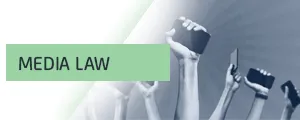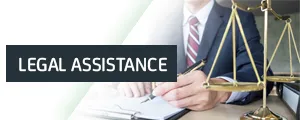Violations of freedom of speech in Kazakhstan January 2025
The International Foundation for Protection of Freedom of Speech “Adil Soz” presents an overview of events reflecting the situation in Kazakhstan with freedom of expression, receipt, and dissemination of information in January 2025.
The Foundation’s monitoring in January recorded:
5 reports related to the rights of journalists and the media, including:
- 1 case of defamation of a journalist,
- 1 case of interference with legal professional activity of journalist,
- 1 case of interference in the activities of a media outlet,
- 2 cases of bloggers’ detention.
10 reports related to the right to freely receive and disseminate information, including:
- 4 reports of refusals or restrictions on the provision of socially significant information,
- 3 reports of DDoS attacks and account hacking, and other incidents.
9 reports of pre-trial and judicial claims and lawsuits filed against journalists, media outlets, and and bloggers, including:
- 2 pre-trial investigations under articles on incitement to discord and extortion,
- 5 pre-trial claims related to the protection of honour, dignity, and business reputation, as well as the right to one’s own image,
- 2 administrative court cases concerning the prosecution of journalists Ruslan Biketov and Asem Zhapisheva for violating legislation on peaceful assemblies:
R. Biketov and A. Zhapisheva staged a solo picket in support of the detained administrator of the QazNews24 public page, Temirlan Yensebek. They were found guilty of violating Article 488 of the Administrative Offences Code of Kazakhstan and were sentenced to administrative detention.
Key Events in January 2025
Kassym-Jomart Tokayev on Freedom of Speech and Disinformation
On 28 January 2025, President of Kazakhstan Kassym-Jomart Tokayev spoke at an expanded Government meeting.
He emphasized the importance of openness and transparency in the work of the government and akims, both for the public and the international community. However, President Tokayev expressed concern that some citizens portray Kazakhstan in a negative way.
"Certain individuals are turning our country into an object of ridicule. While many foreigners admire our achievements and successes, sharing them with the world, some of our compatriots—including figures from show business, young people who call themselves 'public activists,' and even deputies—are tarnishing Kazakhstan’s reputation. This is absolutely incomprehensible," Tokayev stated.
He stressed that the partnership between the state and society must be based on mutual responsibility. The president also reiterated the importance of the "Law and Order" principle, stating the need for strict compliance with laws and a reasonable approach to state regulation measures.
Tokayev noted an increase in cases of disinformation and media manipulation, which are being used to influence public opinion, discredit the authorities, and incite social tensions.
"We are increasingly encountering cases of disinformation and media manipulation aimed at shaping public opinion, discrediting the government, and stirring discord. This poses serious risks to citizen security and national stability," the president stated.
In this regard, he proposed considering the "legislative establishment of accountability for internet platforms regarding the dissemination of harmful content."
Minister of Culture Urges Online Administrators to Prevent the Spread of Unverified News
On 31 January 2025, Kazakhstan’s Minister of Culture and Information, Aida Balaeva, called on online resource administrators to exercise stricter control over the news agenda and remove illegal content. She emphasized that internet platforms are responsible for the information they distribute and must prevent the spread of false publications.
Addressing social media users, Balaeva urged them "not to act recklessly and refrain from posting or commenting in a manner that, under the law, could lead to the blocking of the information source—an online platform."
Amendments to the Law on Access to Information
On 13 January 2025, President of Kazakhstan Kassym-Jomart Tokayev signed a law aimed at enhancing the transparency of government agencies. The document establishes the presumption of openness of information—by default, it must be accessible unless otherwise stipulated by law.
Key Amendments:
- Restrictions on access to information are now introduced only for a certain period.
- The list of publicly available data has been expanded to include information on government agencies’ investment plans, ownership of electricity grid facilities, and statistical data on digital assets.
- A requirement has been introduced to notify the public about closed meetings at least three working days in advance.
- Creation of a specialized regulatory body that will publish annual reports on access to information and approve lists of open data.
The International Foundation for Protection of Freedom of Speech “Adil Soz” welcomed the introduction of new regulations requiring the Parliament of Kazakhstan, the Government, and other authorities to broadcast their open meetings and publish recordings online. In a statement, the foundation noted that several proposals from "Adil Soz" and the media community were taken into account in drafting these amendments.
New Rules for Accreditation of Foreign Media in Kazakhstan
On 19 January 2025, updated rules for the accreditation of foreign media representatives and their journalists came into effect in Kazakhstan. According to the order of the Acting Minister of Foreign Affairs dated 20 December 2024, accreditation documents can now be submitted via the official email address of the Ministry of Foreign Affairs, and the list of required documents has been expanded.
New grounds for denial of accreditation include:
- Submission of false information when applying for accreditation
- Violation of Kazakhstan’s legislation by a foreign media outlet
Permanent accreditation for a foreign media representative office is now issued for a period of three years, after which it is annulled. Permanent accreditation for a foreign media journalist is issued for a period of up to one year.
The updated rules introduce new provisions on the revocation and suspension of accreditation for both foreign media representatives and journalists.
Lawsuit by Journalists Against the Ministry of Culture and Information and the Ministry of Justice
On 23 January 2025, the Astana City Court rejected the appeal of nine journalists challenging provisions of the order of the Ministry of Culture and Information, which approved the "Standard Rules for Journalist Accreditation." The journalists argue that this regulatory act violates their constitutional rights to freedom of speech and information dissemination.
Their primary concern is subparagraph 1) of paragraph 11 of the Standard Rules for Accreditation, which, according to the plaintiffs, prohibits accredited journalists from sharing the information they obtain with any media outlet other than the one that granted their accreditation. Violating this rule twice may result in the revocation of accreditation for up to six months.
The court of first instance ruled that this provision does not restrict freedom of speech. However, the journalists argue that the court’s conclusions do not align with the facts of the case or the literal interpretation of the contested legal provision.
The journalists plan to appeal the decision to the cassation instance.
The Adil Soz Foundation expressed disappointment with the court’s ruling and stated that it would continue to support journalists in their efforts to protect the right to freely disseminate information and maintain journalistic independence.
Detention of Blogger Temirlan Yensebek
On 17 January 2025, Temirlan Yensebek, the author of the satirical public page QazNews24, was detained in Almaty. His detention is believed to be linked to a post on the page responding to Russian journalist Tina Kandelaki’s statement about the "marginalization of the Russian language" in Kazakhstan, as well as to the song "Yo, Orystar."
The Almaty police are investigating a criminal case against him on charges of inciting national hatred (Article 174 of the Penal Code of Kazakhstan).
On 18 January, a court sanctioned Yensebek’s arrest for two months. In response, solo pickets in support of him took place in several cities. The participants were later fined or placed under administrative arrest for violating assembly laws.
On 23 January, the Ministry of Culture and Information of Kazakhstan requested the removal of the controversial song from Meta, TikTok, YouTube, and VKontakte. The ministry reported that, according to monitoring results, the track or its fragments were shared on 22 online platforms, including 12 times on TikTok, 8 times on YouTube, and 2 times on VKontakte.
Cyberattacks on Journalist Vadim Boreiko
On 4 January 2025, journalist Vadim Boreiko reported being targeted by a series of cyberattacks. He received a fake fine notice for a traffic violation, despite never owning a car.
After the New Year, his Instagram account with 113,000 followers was blocked. Additionally, there were multiple attempts to add him to WhatsApp groups using phone numbers from Egypt and Sudan, ultimately leading to the complete blocking of his WhatsApp account.
Boreiko believes these attacks are part of fraudulent activities and warns others to be cautious when verifying sources and links.
Court Proceedings in the Case of Daniyar Adilbekov
On 29 January 2025, the Astana City Court upheld the verdict against Daniyar Adilbekov, journalist and author of the Telegram channel "Dikaya Orda".
On 18 October 2024, Adilbekov was sentenced to 4.5 years in prison on charges of knowingly false denunciation and dissemination false information through media and online platforms.
The charges stem from publications on "Dikaya Orda." Complaints were filed by journalist Gulzhan Yergaliyeva and Aljawder Yusuf Rashed M., an Arab representative of Astana Airport (according to their statements, the case was classified under the article "Dissemination of Knowingly False Information"). According to the statement of the Vice Minister of Energy Yerlan Akkenzhenov, Adilbekov was charged with the article "Knowingly false denunciation".
The second defendant, oil trader Yerlan Saudegerov, was accused of providing Adilbekov with information about Deputy Minister of Energy Yerlan Akkenzhenov. He was found guilty of knowingly false denunciation and received a suspended sentence of three years.
The monitoring was prepared according to reports to correspondents of the «Adil Soz» Foundation
Head of the Monitoring Service of the «Adil Soz» Foundation - Elena Tsoy
Email: lena@adilsoz.kz
For all monitoring-related inquiries, you can also contact: info@adilsoz.kz





